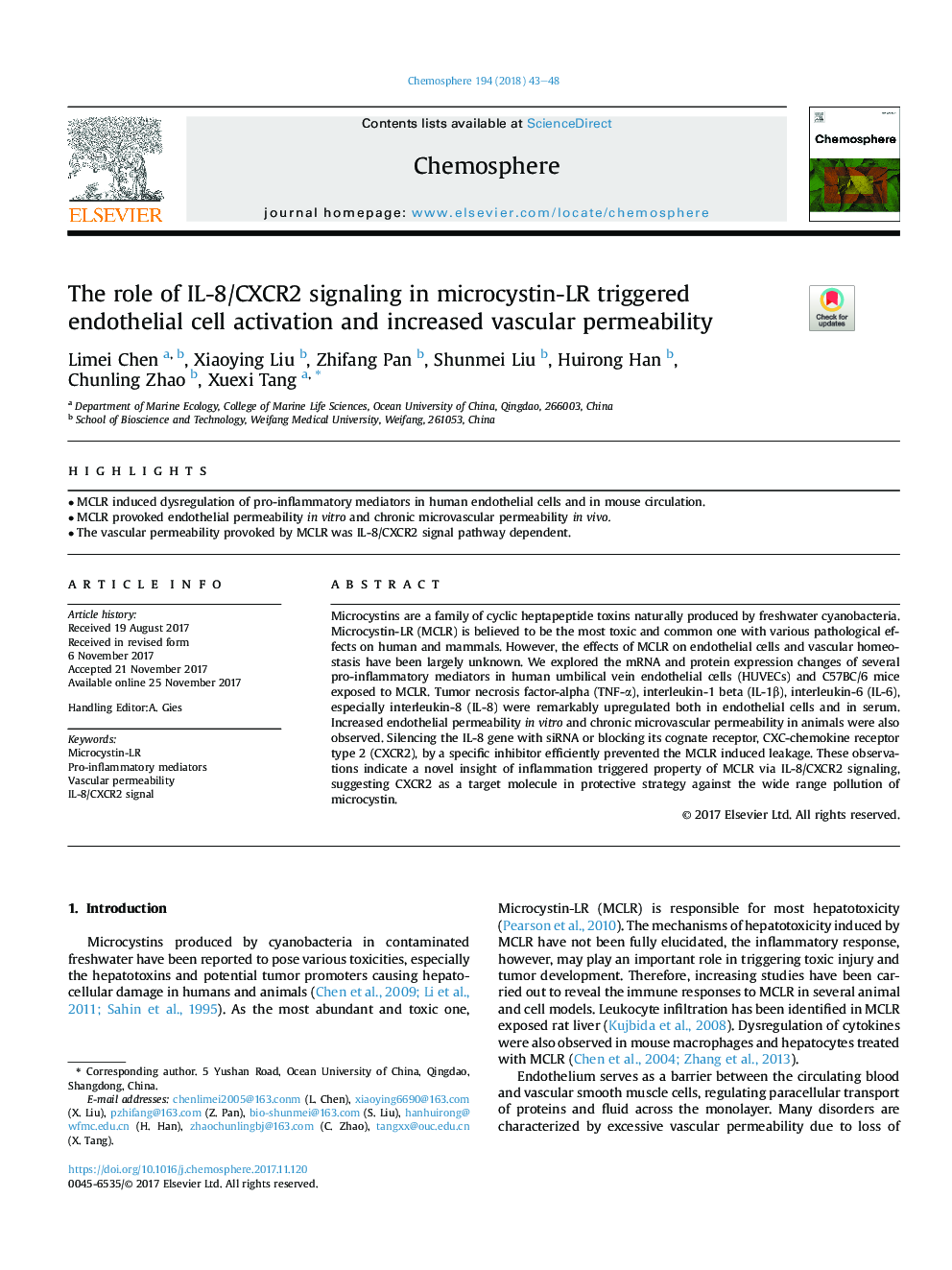| Article ID | Journal | Published Year | Pages | File Type |
|---|---|---|---|---|
| 8852418 | Chemosphere | 2018 | 6 Pages |
Abstract
Microcystins are a family of cyclic heptapeptide toxins naturally produced by freshwater cyanobacteria. Microcystin-LR (MCLR) is believed to be the most toxic and common one with various pathological effects on human and mammals. However, the effects of MCLR on endothelial cells and vascular homeostasis have been largely unknown. We explored the mRNA and protein expression changes of several pro-inflammatory mediators in human umbilical vein endothelial cells (HUVECs) and C57BC/6 mice exposed to MCLR. Tumor necrosis factor-alpha (TNF-α), interleukin-1 beta (IL-1β), interleukin-6 (IL-6), especially interleukin-8 (IL-8) were remarkably upregulated both in endothelial cells and in serum. Increased endothelial permeability in vitro and chronic microvascular permeability in animals were also observed. Silencing the IL-8 gene with siRNA or blocking its cognate receptor, CXC-chemokine receptor type 2 (CXCR2), by a specific inhibitor efficiently prevented the MCLR induced leakage. These observations indicate a novel insight of inflammation triggered property of MCLR via IL-8/CXCR2 signaling, suggesting CXCR2 as a target molecule in protective strategy against the wide range pollution of microcystin.
Related Topics
Life Sciences
Environmental Science
Environmental Chemistry
Authors
Limei Chen, Xiaoying Liu, Zhifang Pan, Shunmei Liu, Huirong Han, Chunling Zhao, Xuexi Tang,
